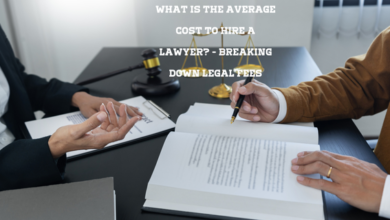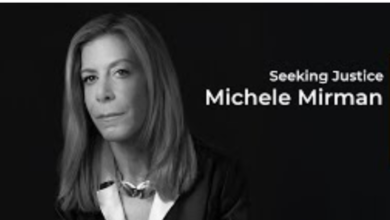In the bustling metropolis of New York City, where industries converge and fortunes are made, Noah Kushlefsky stands as a steadfast beacon of justice. As the managing partner at Kreindler & Kreindler LLP, a firm with a storied legacy in personal injury law, Kushlefsky has built a reputation for taking on complex cases, challenging the nation’s largest and most technologically advanced industries, and securing substantial victories for those who have suffered profound losses.
Early Influences and a Path to Advocacy
Kushlefsky’s commitment to justice isn’t merely a professional pursuit; it’s deeply rooted in personal experience. At the tender age of fifteen, tragedy struck when his father was killed in a car accident. Witnessing firsthand the crucial role of a plaintiffs’ lawyer in seeking accountability and closure for his family left an indelible mark. While he didn’t initially set out to follow a legal path, the formative experience shaped his perspective and ultimately drew him to the courtroom.
Reflecting on this pivotal time, Kushlefsky notes, “It was a natural fit for me, having my life experience, and it was something that informed how I approached my career. It wasn’t just about finding a job; it was about making a difference.”
Kreindler & Kreindler: A Legacy of Legal Excellence
After graduating from The George Washington University Law School, Kushlefsky found his professional home at Kreindler & Kreindler in 1987. The firm, founded in 1950 by Lee S. Kreindler, had already established itself as a powerhouse in aviation accident law, securing landmark victories that shaped industry safety standards. Joining a firm with such a rich history and a commitment to public safety resonated deeply with Kushlefsky’s own values.
Kreindler & Kreindler’s early successes included groundbreaking litigation that exposed design flaws and negligence in aviation, leading to significant changes in aircraft manufacturing, pilot training, and air traffic control procedures. The firm’s commitment to uncovering the truth, no matter how complex or challenging, set a precedent for future generations of attorneys, including Kushlefsky.
Taking on Complex Challenges: Automotive Safety and Keyless Ignition Systems
One of the defining aspects of Kushlefsky’s career has been his relentless pursuit of automakers who prioritize profits over public safety. A particularly notable area of focus has been the dangers associated with keyless ignition systems. In these systems, a driver can start a car with a push button without ever inserting a physical key. While convenient, these systems have proven to be deadly in certain circumstances.
Kushlefsky explains, “The problem arises when someone parks their car in a garage, exits the vehicle, and inadvertently leaves the engine running. Because the key fob is still in their pocket or purse, the car continues to operate silently, emitting odorless and colorless carbon monoxide fumes. Tragically, occupants can succumb to carbon monoxide poisoning while they sleep.”
His work in this area was particularly personal. “I was told that his key fob was on the kitchen counter…and that made me scratch my head,” remembers Noah, speaking of a colleague who tragically died from carbon monoxide poisoning after inadvertently leaving his car running in his garage. “I didn’t understand how a car could run without the fob being in the car. So, I started learning about the design of these push-button ignitions.”
Kushlefsky’s deep dive into federal motor vehicle regulations revealed a loophole. Prior to keyless ignitions, regulations mandated that a physical key could not be removed unless the car was turned off. However, with the advent of keyless systems, the definition of “key” was changed to encompass the electronic code transmitted from the fob. This meant that the car could be running even with the fob removed, creating a dangerous situation.
Driven by a desire to prevent future tragedies, Kushlefsky launched a series of lawsuits against major automakers, alleging that their keyless ignition systems were defectively designed and posed an unreasonable risk to consumers. While these cases were often settled before trial, they served to raise public awareness of the issue and pressure manufacturers to implement safety improvements.
One notable outcome of Kushlefsky’s efforts was a meeting with the National Highway Traffic Safety Administration (NHTSA), the federal agency responsible for regulating vehicle safety. “The meeting was scheduled for five o’clock on a Friday, so I was convinced that I would be brushed aside,” recalls Kushlefsky. “But when I entered the room, there were 13 people there – the head of each different [NHTSA] department – and that’s when I concluded they were actually aware of this issue.” As a direct result, the NHTSA issued a notice of proposed rulemaking to implement safety fixes for keyless ignition systems, though those rules were unfortunately never enacted.
Despite the lack of formal regulations, Kushlefsky’s litigation and advocacy efforts spurred automakers to implement their own safety measures. Many vehicles with keyless ignitions now feature audible alerts that sound if the engine is left running and the key fob is removed from the vehicle. While he acknowledges that it’s difficult to quantify the precise impact of his work, Kushlefsky firmly believes that it has saved lives.
Aviation Accidents: Upholding Safety in the Skies
In addition to his work in automotive safety, Kushlefsky has also played a crucial role in advancing aviation safety. Kreindler & Kreindler has a long history of representing victims of aviation accidents and their families, and Kushlefsky has continued this tradition with unwavering dedication.
One significant area of focus has been the transition from traditional “hands-on flying” to the “glass cockpit,” where pilots rely heavily on computer systems and automated controls. While these technologies have the potential to enhance safety, they also introduce new risks, particularly those related to programming errors and a lack of redundancy.
Kushlefsky and his team have litigated numerous cases involving accidents caused by programming errors in flight management systems. Through meticulous investigation and expert testimony, they have exposed design flaws and inadequate training protocols, leading to significant improvements in aircraft design, pilot training, and flight manuals.
“We used to say that if we kept doing our jobs as well as we were, we would work ourselves right out of a job,” Kushlefsky reflects. “We really did make aviation so much safer.”
The 9/11 Victim Compensation Fund: A Legacy of Healing and Support
Perhaps the most profound and impactful chapter of Noah Kushlefsky’s career has been his unwavering commitment to the victims of the September 11th terrorist attacks and their families. In the aftermath of the tragedy, Congress established the September 11th Victim Compensation Fund (VCF) to provide financial assistance to those who suffered physical harm or lost loved ones.
Kushlefsky and his team at Kreindler & Kreindler stepped forward to provide legal representation to thousands of 9/11 victims, navigating the complex application process and advocating for their rights. Their tireless efforts resulted in the recovery of over $4 billion in compensation for their clients, providing crucial financial support during a time of unimaginable grief and hardship.
“[In 2001], we represented almost 500 [victims’] families, most of which went into the VCF, and the rest litigated cases against the airlines,” Noah recalls. “Subsequent to those cases concluding, Kreindler began filing lawsuits against the terrorists – various entities that we felt were responsible for the attack – and that’s a case we are still currently litigating.”
Recognizing that the health consequences of the 9/11 attacks extended far beyond the immediate aftermath, Kushlefsky also played a pivotal role in expanding the VCF to include individuals who developed illnesses as a result of exposure to toxic dust and fumes at Ground Zero. He and his team now represent over 10,000 individuals suffering from respiratory illnesses, cancers, and other debilitating conditions.
Kushlefsky’s dedication to the 9/11 community has earned him widespread recognition and respect. He was appointed by a federal court to serve on the Plaintiffs’ Committee for all 9/11-related liability litigation and acted as Special Counsel for the World Trade Center Disaster Site Litigation. According to Special Master Sheila Birnbaum, the attorney who headed the 9/11 VCF program in 2011, Kushlefsky was “influential during the wake of 9/11 in the development of the methodology for the original Victim Compensation Fund.”
“The Victim Compensation Fund is [now] open until 2090,” Noah mentions. “So I will be doing that [litigation] for the rest of my professional career.” This long-term commitment reflects his deep sense of responsibility to those affected by the attacks.
A Relentless Advocate: Taking on Powerful Interests
Throughout his career, Noah Kushlefsky has consistently demonstrated a willingness to take on powerful interests, whether they be multinational corporations or government agencies. He understands that achieving justice for his clients often requires challenging the status quo and holding those responsible for harm accountable.
“You have to have both fearlessness and fearfulness,” he explains. “The fearlessness comes in because you’re almost always in a David versus Goliath situation, representing an individual against an extremely well-financed company. The fear comes in because you’re responsible for representing someone who’s [oftentimes] lost their breadwinner. It drives you to work hard, work smart, and be relentless in your pursuit of justice. It’s terrifying, but it also brings out the best in us.”
Partnering with Esquire Bank: Supporting Justice Through Financial Strength
Kushlefsky recognizes that successfully litigating complex cases requires significant financial resources. Expert witnesses, investigators, and cutting-edge technology can all be essential to building a strong case, but they also come at a considerable cost. That’s why Kreindler & Kreindler has partnered with Esquire Bank, an institution that understands the unique financial needs of contingency fee law firms.
“Before working with Esquire, we were almost exclusively self-funded [which] really had an impact on our cash flow and standard of living,” Noah explains. Other banks don’t understand that contingency based law firms depend on future settlements, not historical profit. Esquire understands this model.
“Our banking relationship with Esquire allowed us to continue to operate in years when our cash flow would not have otherwise allowed us to accept cases,” says Noah. “We knew they were there for us and for our clients.”
A Vision for the Future: Advancing Civil Justice for Generations to Come
As a third-generation partner at Kreindler & Kreindler, Noah Kushlefsky is deeply committed to preserving the firm’s legacy and ensuring its continued success for generations to come. He believes that the key to long-term success lies in fostering a culture of excellence, innovation, and unwavering dedication to client service.
Kushlefsky is also a vocal advocate for protecting the rights of injured individuals and ensuring that they have access to the justice system. He actively participates in legal organizations and works to educate the public about the importance of civil justice.
In a world where powerful interests often prioritize profits over people, Noah Kushlefsky stands as a powerful counterforce. His unwavering commitment to justice, his exceptional legal skills, and his deep compassion for his clients have made him a true champion of the people. He is an attorney who has made, and continues to make, a real difference in the lives of those he serves, pushing for a safer and more just world for all.
“Insurance companies and corporations [run] campaigns to blame trial lawyers for everything bad, [like] prices, insurance, and costs,” mentions Noah. “Over time, I hope people understand that’s false, [and] that the plaintiffs’ bar doesn’t simply take money. We are here to serve a purpose for the common good more than anything else.”


